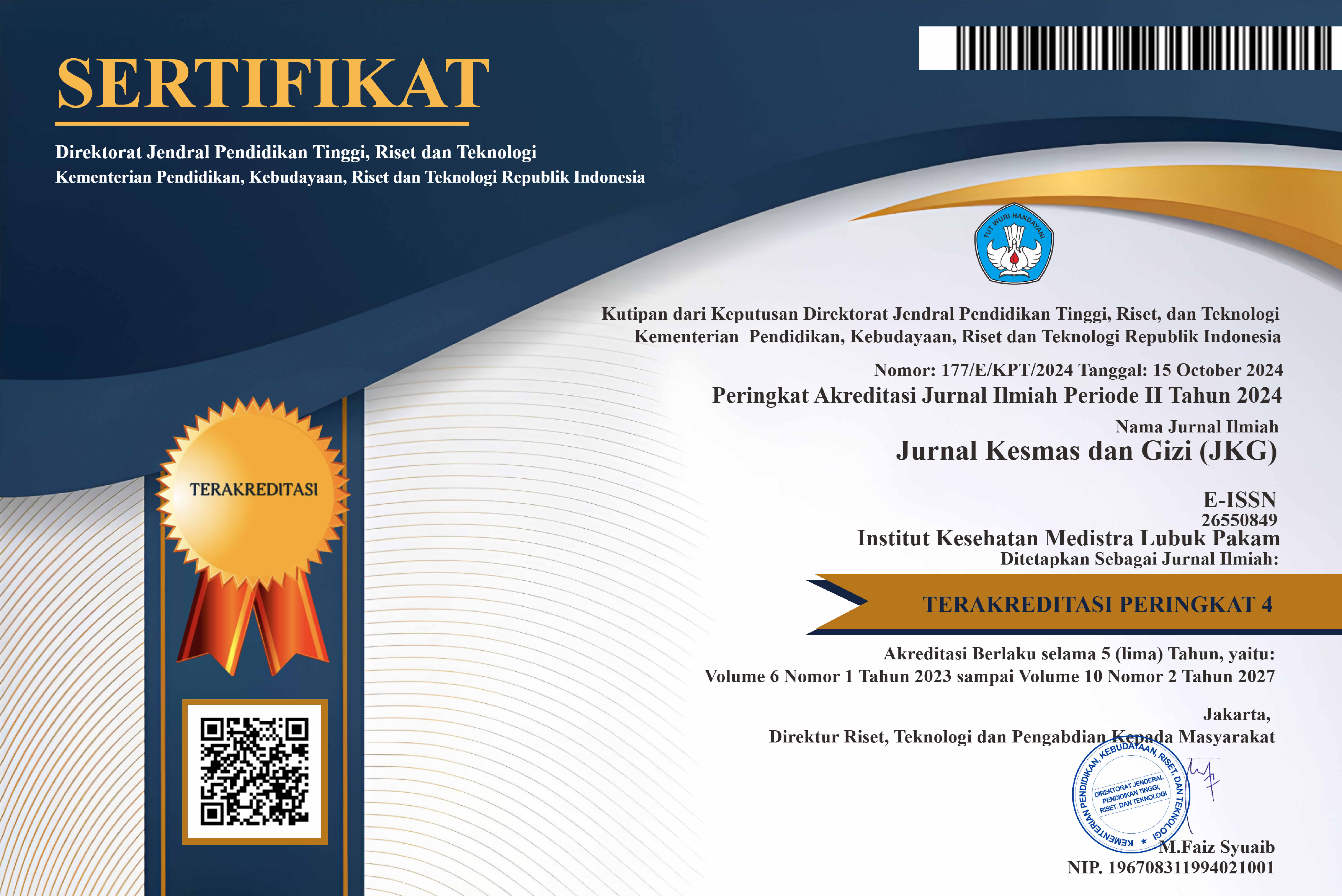FACTORS RELATED TO SUBJECTIVE COMPLAINTS DUE TO HEAT EXPOSURE WORKERS FOR BRICK-MAKING IN SIDOURIP VILLAGE
DOI:
https://doi.org/10.35451/jkg.v4i2.1062Keywords:
Subjective Complaints, Heat Exposure, Bricks WorkersAbstract
Humans have a limited ability to maintain body temperature in the surrounding environment. Activities at high or even extreme temperatures can have an impact, both in terms of economy and occupational safety and health. Workers can experience fatigue due to the work climate with high temperatures. The purpose of this study is to explain the factors associated with subjective complaints due to heat exposure to workers in the brick-making kitchen in Sidourip Village. This research is a quantitative research with an analytical survey approach using a cross sectional design. This research was conducted in Sidourip Village, Pagar Merbau District, Deli Serdang Regency. All brick-making workers in the kitchen were used as the population in this study. The sample in the study was 30 brick-making workers in the kitchen who were drawn by the total sampling technique. Data were collected using primary and secondary data. Data were collected using primary data and secondary data and then analyzed using the chi square test with a 95% confidence level (alpha = 5%). The results showed that there was a significant relationship between age, tenure, length of work and exposure to heat with subjective complaints and length of rest had no relationship with subjective complaints of brick-making kitchen workers in Siduorip Village. It is suggested to the refinery owner to take preventive action to reduce subjective complaints felt during work.
Downloads
Downloads
Published
Issue
Section
License
Copyright in each article is the property of the Author.



























